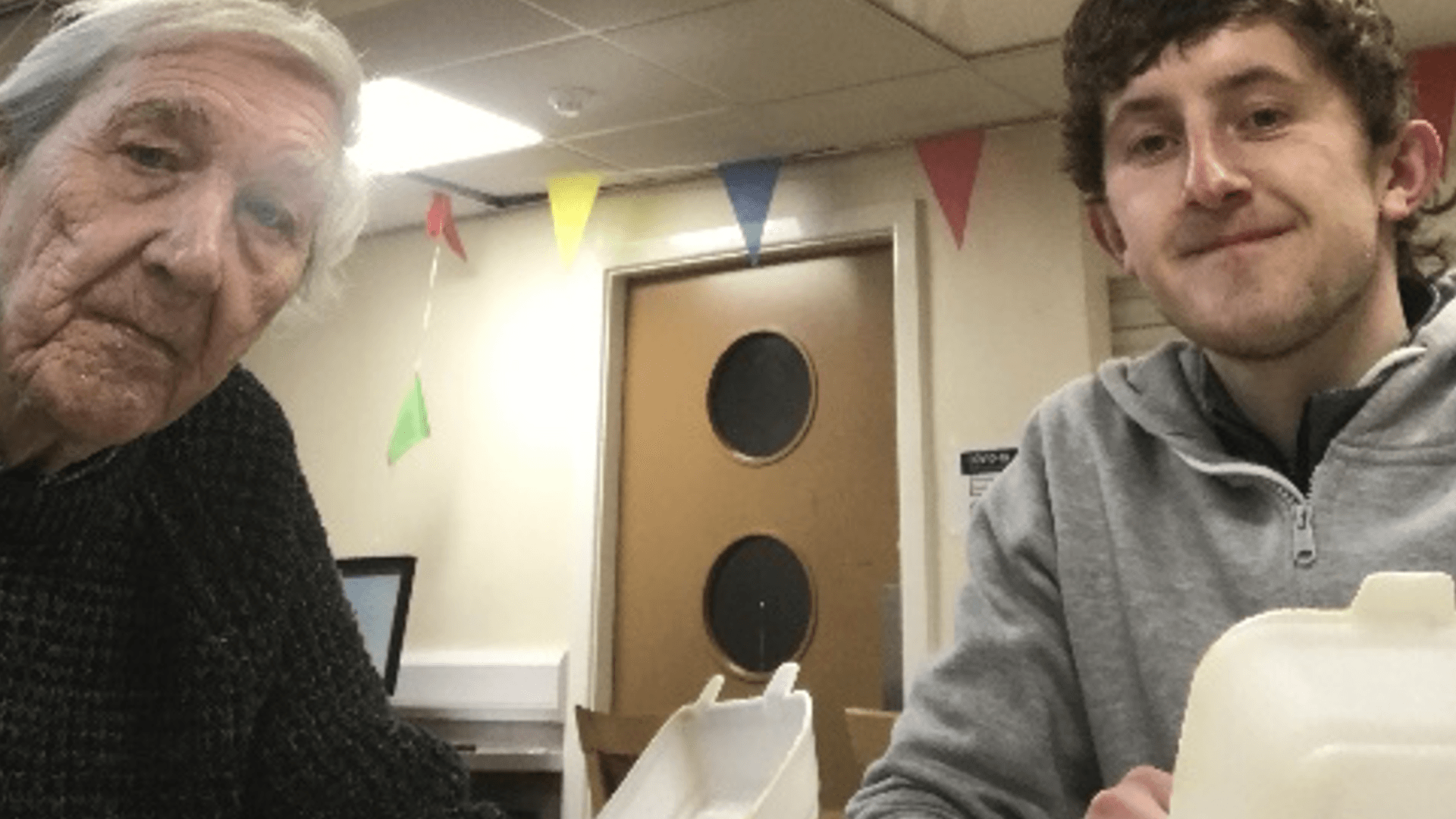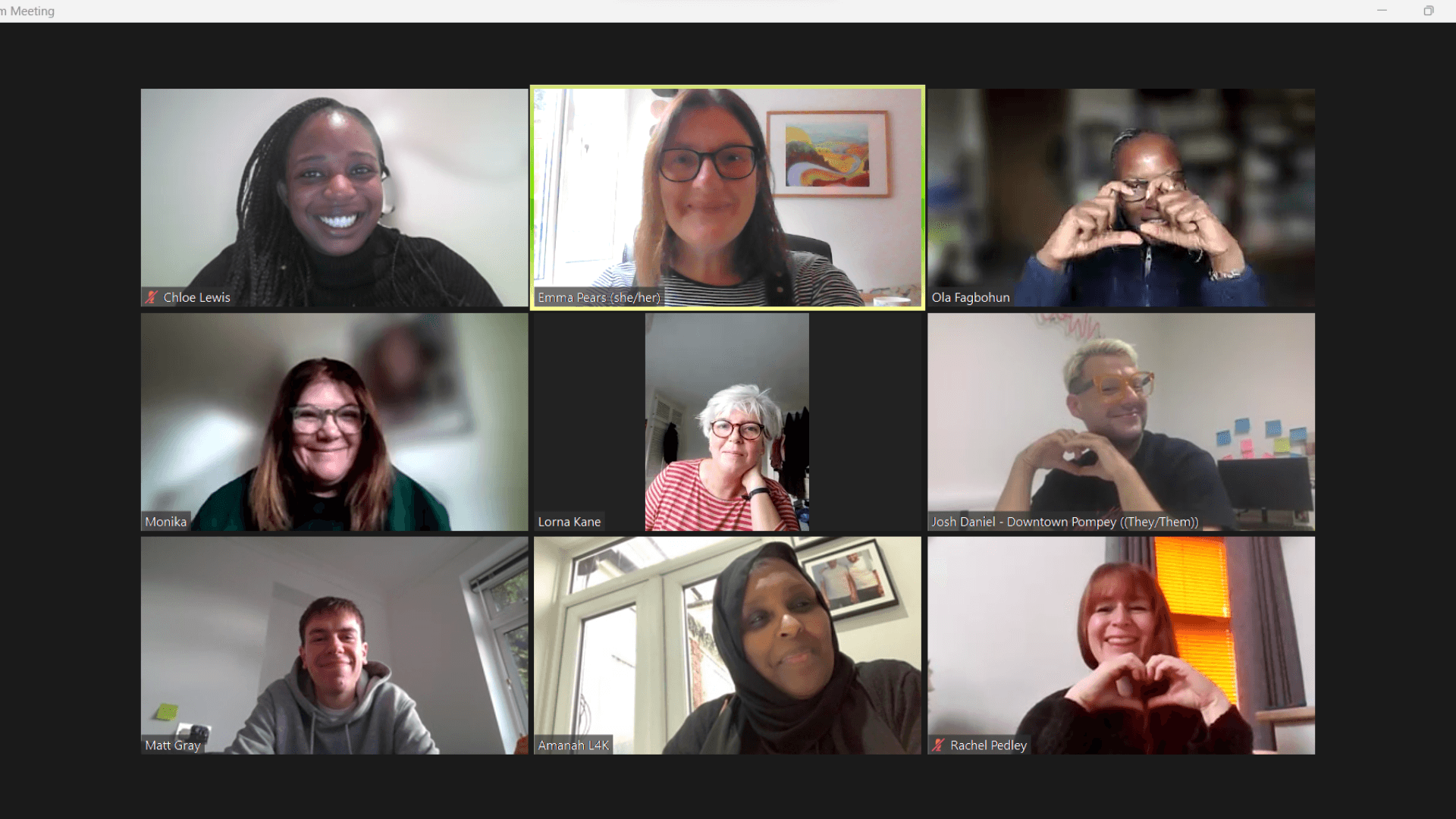
We can all see and be seen
Posted by The Cares Family on 7th June 2019
Please note: this post is 73 months old and The Cares Family is no longer operational. This post is shared for information only
By Ruth Ibegbuna and James Appleton
“This is a picture of the Durham Miners’ Gala.”
Newcastle was the third event in our Roots Revealed series. Twenty-five of us were gathered in a cosy, chic space in the back of a café-bar, talking about Brexit, council estates, education and the North East, over lager and chips, wine and canapés. In Manchester, we’d been in a museum room under the gaze of a skeletal T-Rex; in London, a sleek office in the City.
The purpose of the events was twofold. First, to introduce The Roots Programme which this year will launch cultural exchanges between people with radically different life experiences – bursting one another’s bubbles to build real understanding of people whose existences they might otherwise never encounter.
The second is to give a taste of that experience to our gathered guests. So far, each city has had a different and characteristic mix of people, and we’ve conducted engaging sessions to bring out views on the country, its current state and its future.
We’d asked attendees to show a photo that represented their communities – one that they felt captured something about where they came from and what moulded them – and to speak about it for a few minutes. Most photos were of tower blocks or rolling fields, streets and houses, families and friends.
This man in Newcastle had chosen an image of a colourful banner on a sunny day, red fabric with a union lodge name embroidered in gold. As he prepared to speak about it, our politically engaged gathering was ready to hear stories of unionism and scathing rebukes of Thatcherism.
By the time the man had finished speaking, we were all holding back tears. He spoke not about the significance of the Gala on the British and North East’s political landscape, but how it made him think about his parents, for whom it had been a key event in the year. He spoke about how he had seen social mobility and changes in aspirations between his grandparents’ mining family and his upwardly mobile mother’s generation. He told us about his own educational background and how his daughter had just graduated from Cambridge. He said that his mother would have been incredibly proud of her granddaughter. His mum had passed away last year.
At Roots, when we gather people together we neither demand nor expect stories like the one we heard in Newcastle, or numerous others like it. All we do is create a space for conversation. We don’t ignore current events – in fact they form a backdrop for every discussion we have. But we foreground people’s experiences, upbringings, feelings, their humanity – because that’s what makes people who they are.
The average person in the UK spends twenty-four hours a week online. We thumb through fired-up tweets, filtered Instagram photos and indulgent Facebook posts. Most are affective or self-aggrandising. They focus on polar extremes of emotion: joy and anger; despair and love. They give us the false impression of knowing people.
But, despite the impression given – not only by social media, but also by a polarised news media and the dispersal of traditional communities – most of us dwell in between the extremes of both emotion and politics. Our existence is nuanced, but there is little opportunity to express that.
Another thing we ask people to do when we meet them is to write a name tag which features a label other people give them, that they don’t like. The range has been fascinating and thought-provoking. Sometimes the reason people dislike the labels is that they aren’t true, such as the well-spoken, smartly dressed man at our London event, whom everyone wrongly assumed was privately educated.
However, more often, the reason the label is unwelcome is not that it doesn’t hold a grain of truth, but more that it pigeonholes the bearer – puts them in a box that affects how people treat them. A Russian man in Newcastle half-jokingly wrote ‘KGB agent’ on his label, saying that jokes easily transitioned into assumptions and mistrust. A young mixed-race woman in Manchester wrote ‘Angry black girl’, noting that even when she was angry, a white man would be called assertive in the same situation. An 18-year-old put ‘LAC’ – looked-after child – and told the group how people formed an instant impression of who he would be, having been through the care system. From the light-hearted to the deeply moving, the common motif was of people wanting to be understood as more than a category into which they were placed.
At the beginning of our event series, we thought we’d be hearing powerful and under-represented viewpoints on the state of Brexit Britain. And we have heard those. But they haven’t been the moments of greatest impact: those are when we see behind the shroud – behind the self-imposed mask of our social media ‘brand’ or the box that others put us into based on minimal information about our stories.
We are a society built on superficiality and instant reactions, but most people are desperate to be seen truly. This doesn’t just affect us as individuals, but also deepens those divisions which have led to toxic conversations about class, Brexit, north and south, immigration and countless other topics.
It’s easy to feel bleak about this. Social media and technology will keep growing and each generation will be progressively more engaged with and dependent upon it. Nonetheless, there is optimism to be found in bars, museums and offices around the country. When you look someone in the eye and speak openly about your experiences – and listen to the experiences of others – you can see that genuine connection is still there to be forged.
The tech innovations of the age can play a part in that – after all, all our events all have been advertised primarily through social media, and those who feel isolated can find solace in the stories that others share online. While we and others keep making spaces for conversation, there is hope that we can all see and be seen.
Ruth Ibegbuna is the Founder of The Roots Programme, an initiative bringing together people with radically different life experiences to create more cohesive communities. She was previously Founder and CEO of RECLAIM, a Manchester-based charity focused on developing the leadership skills and critical thinking of working class young people.
James Appleton is the Director of Strategy at The Roots Programme and has written several powerful articles about the need to build a more curious and compassionate and hopeful UK.
This article is part of the pamphlet Finding connection in a disconnected age: stories of community in a time of change, published in partnership with Nesta.


